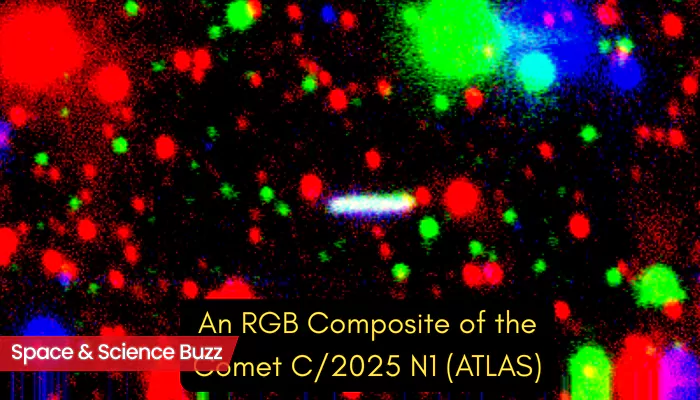
Here are today’s most important updates from the realm of Science and Space.
In a landmark achievement for Indian astronomy, scientists operating the high-altitude observatories of Hanle, Ladakh, have successfully photographed the interstellar comet C/2025 N1 (ATLAS), also known as 3I/ATLAS, as it races through the Solar System. The comet, officially confirmed on July 1, 2025, by the Asteroid Terrestrial Impact Last Alert System (ATLAS) telescope in Chile, has quickly become a focal point for the global astronomical community. These observations are regarded as crucial, providing unique data as the comet brightens and approaches its closest point to the Sun’s perihelion expected around October 29, at about 1.4 AU from the Sun.

A new study has uncovered that Uranus, the seventh planet from the Sun, generates heat from within, which challenges earlier beliefs that Uranus lacked internal heat. The study shows Uranus emits about 12.5% more heat than it receives from the Sun, which is around 1.8 billion miles away. This overturns earlier findings from NASA's Voyager 2 mission in 1986, which had suggested the planet was unusually cold and inactive internally. The researchers said that Uranus is still slowly releasing residual heat from its formation, offering valuable insight into the planet's evolution and origin. While Uranus does produce internal heat, it remains far behind Jupiter, Saturn, and Neptune, which emit up to 100% more heat than they absorb from the Sun. The amount of heat emitted from Uranus is also influenced by its extremely long seasons, each lasting over 20 years.

Dogs trained to detect Parkinson’s disease using scent have shown remarkable accuracy in new research. People with Parkinson's have a unique odour associated, which dogs can smell. In a double-blind trial, they identified skin swabs from people with Parkinson’s with up to 80% sensitivity and 98% specificity, even when other health conditions were present. The findings offer hope for a simple, non-invasive diagnostic method using biomarkers that appear long before traditional symptoms, potentially allowing earlier treatment and slowed disease progression. A definitive diagnostic test for Parkinson's Disease (PD) remains elusive, so identification of potential biomarkers could help diagnosis and timely intervention.

Across the globe, oceans are acidifying as they absorb carbon dioxide from the atmosphere, threatening coral reefs and many other marine organisms. A new study revealed that unprecedented levels of ocean acidification are expected around the main Hawaiian Islands within the next three decades. Increased ocean acidification has the potential to harm marine life by weakening the shells and skeletons of organisms such as corals and clams, amplifying the effects of existing stressors, and threatening ocean-based ecosystems. The extent and timing of these changes vary depending on the amount of carbon added to the atmosphere.